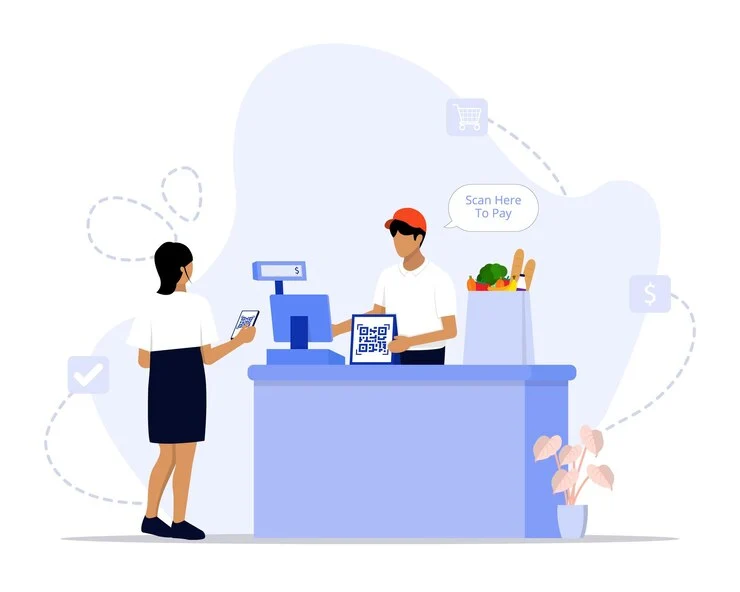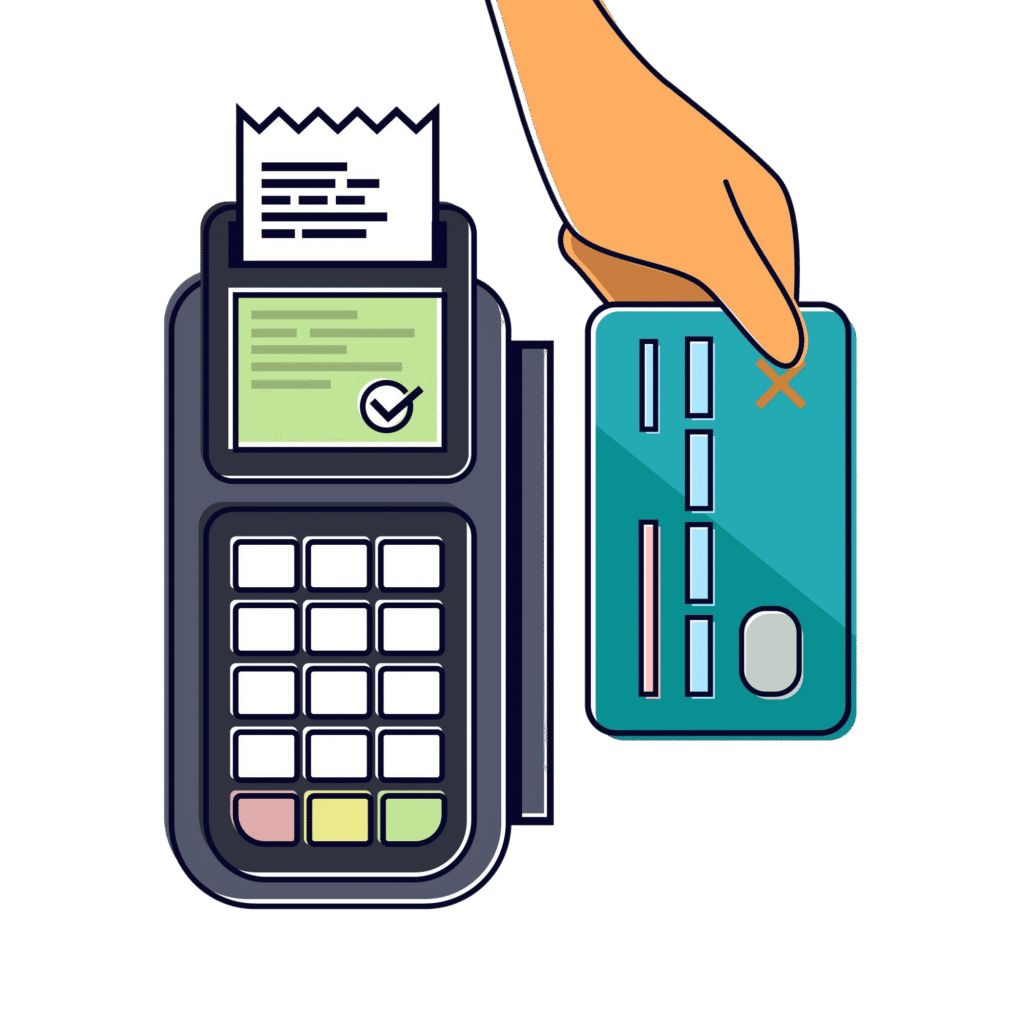According to Forbes, the evolution of point-of-sale systems has transformed business operations, enhancing efficiency and customer experience. Today, delivering exceptional customer experience (CX) is a top business priority. According to research by Gartner, PwC, and Salesforce, investing in modern POS systems is essential to delivering a seamless, personalized POS Experience that drives loyalty and growth.

A seamless point of sale experience is critical for customer satisfaction and streamlining business operations. If you run a coffee shop, retail shop, or restaurant, the efficiency of your point of sale will directly affect how customers feel about your business. This guide explores “What is POS Experience?” and delves into the POS Experience Meaning, covering everything from the importance of the point-of-sale experience to its issues and practical strategies for making it flawless.
Learn more about What is POS and POS Person?
| Source | Good Experience | Bad Experience |
|---|---|---|
| Gartner Research | 64% of customers prioritize experience over price | Over 50% of customers abandon brands after a bad experience |
| PwC Report | 73% of customers say experience drives purchasing decisions | 32% of customers leave after one bad experience |
| Salesforce State of the Connected | 84% of customers value experience as much as products or services | 66% of customers expect brands to understand their needs |
What is POS Experience?
The POS Experience is a transaction from when a customer decides to check out until the sale is completed. An optimized POS system assures transaction efficiency, better customer satisfaction, and, most importantly, ease of use.
In simple words: the point of sale experience is the quality of your customer’s journey at checkout — and it can make or break their decision to return.
Learn about: What is POS Transactions & POS Reconciliation
Key Elements of a Superior POS Experience
- Customer Interaction: A well-run checkout process guarantees that customers have the least time to wait and can shop positively.
- Employee Usability: Easy-to-use POS systems allow staff to complete transactions quickly and accurately.
- System Reliability: Smooth operational functionality has been associated with integration, such as inventory management, CRM, and payment processors.
- Security and Compliance: Ensures customer confidentiality and an environment suitable for otherwise, making it possible for this to be done to form trust and credibility for customer data.
POS Experience Meaning
The POS experience meaning revolves around a seamless, fast, hassle-free checkout process that delights customers and simplifies business operations. It combines speed, intuitive technology, and reliability to create a smooth transaction journey that leaves everyone.
Why is POS Experience Important?
A completely on-the-point point-of-sale experience has a significant influence on business success in several ways:
- Superb Customer Satisfaction: Fast and efficient transactions encourage repeat business and build the brand’s image.
- Operational Efficiency: Reduced errors at a POS improve the speed of transactions.
- Increased Sales & Decrease in Abandonment: A smoother checkout process reduces cart abandonment.
- Analysis-based Insights: Contemporary POS system offers insightful analytics on customer behavior and sales trends.
- Brand Reputation: An experience wherein a checkout process is reliable and efficient enhances trust and customer loyalty.
Why Does POS Experience Matter?
- 67% of customers say they’ll switch stores if checkout is too slow (Source: NRF).
- 86% of buyers are willing to pay more for a better customer experience (Source: PwC).
- A smooth POS process increases repeat purchases and referrals.
When done right, POS experience boosts sales, reduces errors, and builds customer trust.
How Does a POS System Work?
A POS system works by:
- Logging in and setting up the terminal.
- Adding items to cart (via barcode scan or catalog).
- Applying discounts or promotions.
- Accepting payments (cash, card, mobile wallet).
- Issuing digital or printed receipts.
- Updating inventory in real-time.
- Recording customer details for loyalty/marketing.
- Generating reports for better decision-making.
POS Experience in Different Industries
- Restaurants → Tableside ordering with tablets reduces wait times.
- Retail Stores → Fast barcode scanning avoids checkout bottlenecks.
- Pharmacies → Accurate prescription tracking with instant billing.
- Bakeries & Cafes → Contactless payments speed up morning rush.
- Clothing & Jewelry Stores → Customer profiles enable personalized recommendations.
- Furniture Stores → Split payment options improve big-ticket sales.
Each industry has its own POS challenges, but the goal remains the same: faster, easier, and more satisfying checkouts.
Challenges in Achieving a Seamless POS Experience
Despite its advantages, businesses often face challenges in optimizing their Point of sale experience. Some common issues include:
- Obsolete technology: Older models are slow to transact and do not have the required functionality.
- Disparate: Inefficiencies exist, and the absence of a single integrated POS hampers operations.
- Inadequate Training: Cashiers who lack training and experience take a long time to complete customer transactions.
- System Unavailability: Operational disruption during downtimes reduces company revenue, leading to lower customer satisfaction.

12 Tips to Improve Your POS Experience
1. Choose the Right POS System
Choosing the right Point of sale system is fundamental to efficient transaction processing. To keep in mind:
- Ease of use: A simple interface decreases the employee training duration.
- Integrability: Ideal compatibility with inventory, CRM, and accounting software.
- Scalability: The system has to grow as your business grows.
- Cloud-Based: It allows you to access remotely and keep updated in real-time.
2. Invest in Employee Training
Provide staff with comprehensive training to:
- Process transactions efficiently.
- Troubleshot basic system issues.
- Enhance customer service at checkout.
3. Ensure System Reliability
To maintain a seamless Point of sale experience:
- Regularly update the software.
- Perform system maintenance.
- Have a backup system in place.
- Choose a vendor offering 24/7 support.
4. Speed Up Checkout Processes
Enhance transaction speed with:
- Barcode scanners and contactless payments.
- Digital receipts for convenience.
- A streamlined checkout flow.
5. Personalize the Customer Experiences
Leverage POS data to:
- Offer tailored discounts.
- Implement loyalty programs.
- Provide product recommendations based on purchase history.
6. Adopt Mobile POS (mPOS) Systems
mPOS solutions enable staff to process transactions from anywhere, effectively cutting down on the time customers have to wait.
7. Expand Payment Options
Enhance convenience by accepting multiple payment methods, including:
- Credit and debit cards.
- Mobile payments (Apple Pay, Google Pay).
- Buy now, Pay Later options.
- Cryptocurrency payments.
8. Monitor and Analyze POS Performance
Use Point of sale analytics to track:
- Transaction speed.
- Customer retention rates.
- Employee performance.
- Sales trends.
9. Upgrade Hardware and Software
Invest in:
- Responsive touchscreen monitors.
- Modern card readers and contactless terminals.
- Secure and compliant POS software.
10. Strengthen Security Measures
Protect customer and business data by implementing:
- End-to-end encryption.
- PCI DSS compliance.
- Multifactor authentication for employee access.
11. Gather Customer Feedback
As to the issues and areas of improvement identified regarding checkout processes, customers must be encouraged to put forward their ideas.
12. Enable Omnichannel Capabilities
Ensure a seamless shopping experience across online and in-store platforms by:
- Syncing inventory across channels.
- Offering cross-channel promotions.
- Managing online orders and in-store pickups.
Common POS Experience Mistakes to Avoid
❌ Long queues due to outdated systems
❌ Limited payment methods
❌ Poorly trained staff
❌ No real-time inventory tracking
❌ Ignoring customer data & preferences
Fixing these mistakes immediately boosts your POS system experience.
The Role of POS Experience in Business Success
An optimized Point-of-sale system enhances:
- Efficient transaction.
- Satisfaction and retention of customers.
- Generation of revenue.
- Reputed and trusted business.
An optimized Point-of-sale system contributes to its efficient transaction processing API. It’s hence way more than point-of-sale experiences to take the organization ahead of its rivals and make customers permanent.
Conclusion
Improving the point of sale experience means more than just processing transactions—it includes handling taxes accurately and enhancing speed, convenience, and reliability for both customers and staff. What is POS experience? It’s the overall impression created during the checkout process, from how smoothly the system runs to how easy it is for staff to use. The true POS experience meaning lies in creating seamless, efficient interactions by investing in the right POS system, training employees effectively, and leveraging the latest technology. When done right, it leads to a future-ready checkout process that drives growth and keeps customers coming back.
Start optimizing your Point of sale system today, and you’ll instantly reap the benefits of increased efficiency, higher sales, and superb customer experience!
Frequently Asked Questions
Ans. POS experience is the knowledge and skills of using a Point of Sale system to process transactions, manage sales, and handle customer interactions.
Ans. Point of Sale experience means familiarity with operating a point-of-sale system, which includes processing payments, issuing receipts, managing inventory, and assisting customers.
Ans. POS experience in retail involves using a POS system to scan products, process payments, apply discounts, track inventory, and provide a seamless checkout experience.
Ans. Experience in POS is the ability to effectively use point-of-sale systems for processing payments, tracking inventory, generating sales reports, and providing efficient customer service.
Ans. POS experience in a restaurant includes taking orders, processing payments, managing tables, splitting bills, and ensuring smooth service using a Point-of-sale system.
Ans. Point of Sale experience relates to expertise in using a Point of Sale system to carry out transactions, manage sales, and enhance operational efficiency.
Ans. Experience in POS refers to a person’s knowledge and practical skills in using point-of-sale systems. It includes handling transactions, managing sales, operating POS software, and troubleshooting system issues.

